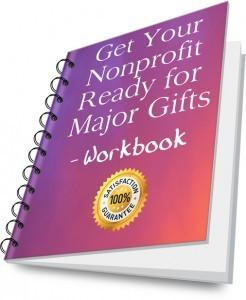
The better to hear you with!
You have two ears and one mouth. Use them in that proportion.
Ever hear that?
It’s the secret to building authentic, lasting relationships. Full stop.
Whether you’re dating, parenting, teaching, attending a conference or hosting a dinner party, the ability to be fully present – in listening mode – will impact so many things. For good or ill.
- Whether people want to keep talking to you, or don’t.
- Whether people feel relaxed and open, or anxious and stressed.
- Whether people want to tear down walls, or build them up.
- Whether you learn something, or don’t.
- Whether you’re perceived as compassionate, understanding and helpful, or not.
- Whether people like you, or don’t.
Donor loyalty and love are earned, and it begins with YOU listening.
If I had to boil down Penelope Burk’s two decades of groundbreaking research in donor-centered fundraising into one thing donors want, it would be this: SHOW ME YOU KNOW ME. There are lots of ways to do this, but we sometimes miss out on the most obvious one.
Become a Donor Coach
Your job – as fundraiser, nonprofit professional and philanthropy coach – is to help your donors see the way to greatness. Think of this as part and parcel of your job as a philanthropy facilitator. In donor coaching mode, you need to listen so you can find “coaching moments” – opportunities to motivate donors to engage with, and act on, their passions in a way that brings them meaning and joy.
“Coaching is a worldview that is driven by the intention to be of service to others.”
— Dianna Andersen, Cyliant
Your job is to guide folks over the river, through the woods, up the mountain and wherever else their individual journey may take them until they find their own special place. The place where they are comfortable. And happy. And, yes, where they feel their passions lie.
4 Strategies to Listen So Others Will Talk
Let’s look at four skills the job of philanthropy facilitator — aka coach, guide or genuine friend –requires of you.
1. Become an Active, Attentive, Focused Listener
This is something to which you truly have to dedicate yourself. It takes discipline and practice. But once you get in the groove it will start to come more naturally. You simply must stop yourself when you notice you’re preaching. This is what preaching sounds like:
- We are really great… big… important… essential.
- Everybody is so excited about this.
- Let me tell you about this program you’re sure to be interested in.
- This is what we accomplished last year.
- I’d love to update you.
- The problem right now is bigger than ever.
- I know you care about this.
You’ll notice preaching includes a lot of expectations about what your donor thinks and believes. But… do you really know? Or are you just making assumptions?
To become a receiver rather than a preacher, think of yourself as a coach or therapist. How strange would it seem if your coach or therapist talked nonstop about themselves? Or if they told you what you liked or didn’t like? Rather, the good coach listens to learn something new that translates to insight. Insight you can use to ask more questions that lead to insight on the donor’s part. If done well, this will lead to meaningful action (the donor does something differently) in order to realize their potential (become a more fully-expressed person).
2. Become a Loving Listener
A loving coaching approach need not be formal. Certainly you’d never presume to say to your donor “I’ll be your coach today.” You’re building a relationship, not executing on a contract. Being a loving listener simply means when you are in a conversation, you listen closely enough that you could repeat back what the other person just shared. This is what loving listening feels like:
- You’re not thinking about your own script.
- You’re not thinking about your counterargument.
- You’re not thinking about an experience you’ve had that’s similar to theirs.
- You’re not thinking about anything other than what you’re hearing.
You’re dedicated to listening to learn more about the donor and their experience. And you are listening with your whole body, attuning to the speaker’s face, body language, tone of voice, energy – not just the words they share. That way you can pay extra attention when their eyes light up or their body leans forward – a signal you should engage and probe more about this particular subject. And, by the way, you can accomplish this via a Zoom visit! In fact, this happens to be one of the more inspiring lessons learned during pandemic era fundraising.
3. Meet People in the Moment
Don’t put your donor in a box. Even though you may know something about the donor’s past words or behaviors, that doesn’t mean this is how they feel right now. Before you begin a donor conversation, remind yourself to stay in the moment. A moment fraught with new promise. Put what you think you know about them over to the side for now, so you can meet the situation with openness, curiosity, and a sense of possibility.
Meet your donor where they are today. And you know what? This may mean extending the way you have your conversation to a new medium. This digitally-revolutionized world we’re in knows no generational boundaries. Sure, more Millennials and GenZ use mobile technology than their older friends and relatives, but my 83-year-old mother-in-law recently became an avid user of text messaging. She likes having conversations that way, and it’s the easiest way to grab her attention. You wouldn’t know that unless you asked.
4. Ask Questions to Draw Folks Out – No Statements!
If you’re actively, lovingly listening, you’ll naturally become curious to learn more about where your donor is coming from. Follow that curiosity! Try to focus your attention on what you’d like to hear more about. What might they mean by what they just said? What else might underlie their statement?
Ask open-ended questions to enable the donor (or, for that matter, your boss, co-worker, child, partner or anyone else) to offer up their own thoughts, perspective and story. Don’t ask yes/no questions. Those will get you nowhere fast. And don’t ask leading questions, questions with an agenda or a particular idea in mind. For example, “Don’t you think you should…?” Or “Here’s my brilliant idea; what if you were to try this?” Questions that assume things… questions that fall into preaching mode… these are no-no’s.
To uncover more, here are some general ways to frame the conversation:
- Can you tell me a bit more about that?
- How do you think you came to feel that way?
- How does that make you feel (I know, it sounds cliché; it works)?
- What other things come to mind for you?
- What’s the bottom line for you?
For major donor prospects, find more specific open-ended major donor questions here. If you want to be inspired by some of the types of stories your donor will tell you if you ask the right questions, these responses to the 2021 Burk Donor Survey should do the trick. When talking to someone you’re trying to guide towards passionate philanthropy, be sure to ask questions that put them in a kind, benevolent frame of mind. A disposition that may make them think about giving back. Or honoring someone who changed their life. One question I like is “Who was your mentor?” Listen for what they reveal about what makes a deeper relationship in their mind and heart. You’ll learn about someone who took time to help and guide them. Just like you’re doing now!
Closing Thoughts
Like any other muscles, listening and coaching muscles must be exercised to get strong. Which brings me to my final thought…
LISTEN UP!
You can’t listen up unless you create opportunities to listen. This is an absolute must if you work with donors! Which means contacting donors to set up appointments for chats. Whether you do this in person, via Zoom, Skype or Facetime, or even via an email or text conversation as a prelude to the main event (the written word is generally recommended as a way to secure a visit at some point, one where you’ll be able to witness each other’s body language and hear each other’s tone of voice).
Right now, before you lose your nerve, pick at least three people to call this week or next. People you want to get to know better. This is not an ask for money. It’s a friendly chat. Like you’d have with a friend. And remember…
You have two ears and one mouth. Use them in that proportion.
Otherwise, when you get ready to make that ask, how will you be able to show your donor you know them?
Want to Learn More about Facilitating Passionate Philanthropy?

Major Gifts from A to Z: Get all 4 volumes at a ‘Bargain Bundle’ discount.
That’s why I created the Major Gifts Playbook. It’s an easy, step-by-step, four-volume journey where you’ll learn how to develop and implement a successful major gifts program for your small to medium-sized organization. For major gift prospects to become viable options for you, you must become meaningful to them. You can’t ask virtual strangers for major gifts. This means a systematic process of building relationships where you and your prospective donor continue to learn more about one another over time. You can buy each of these guides individually too, if that better meets your needs. But you’ll get a bargain buying the bundle.
All Clairification products come with a 30-day, no-questions-asked, 100% refund guarantee. So you can’t lose. I’ve packed decades of experience into these guides, and I really want you to benefit. But if you’re not happy, I’m not happy. So… no worries. [Please note if you’re a Clairification School student you’ll receive a generous discount. So be sure you’re logged in before purchasing. And if you’re not yet enrolled, now would be a good time.]





